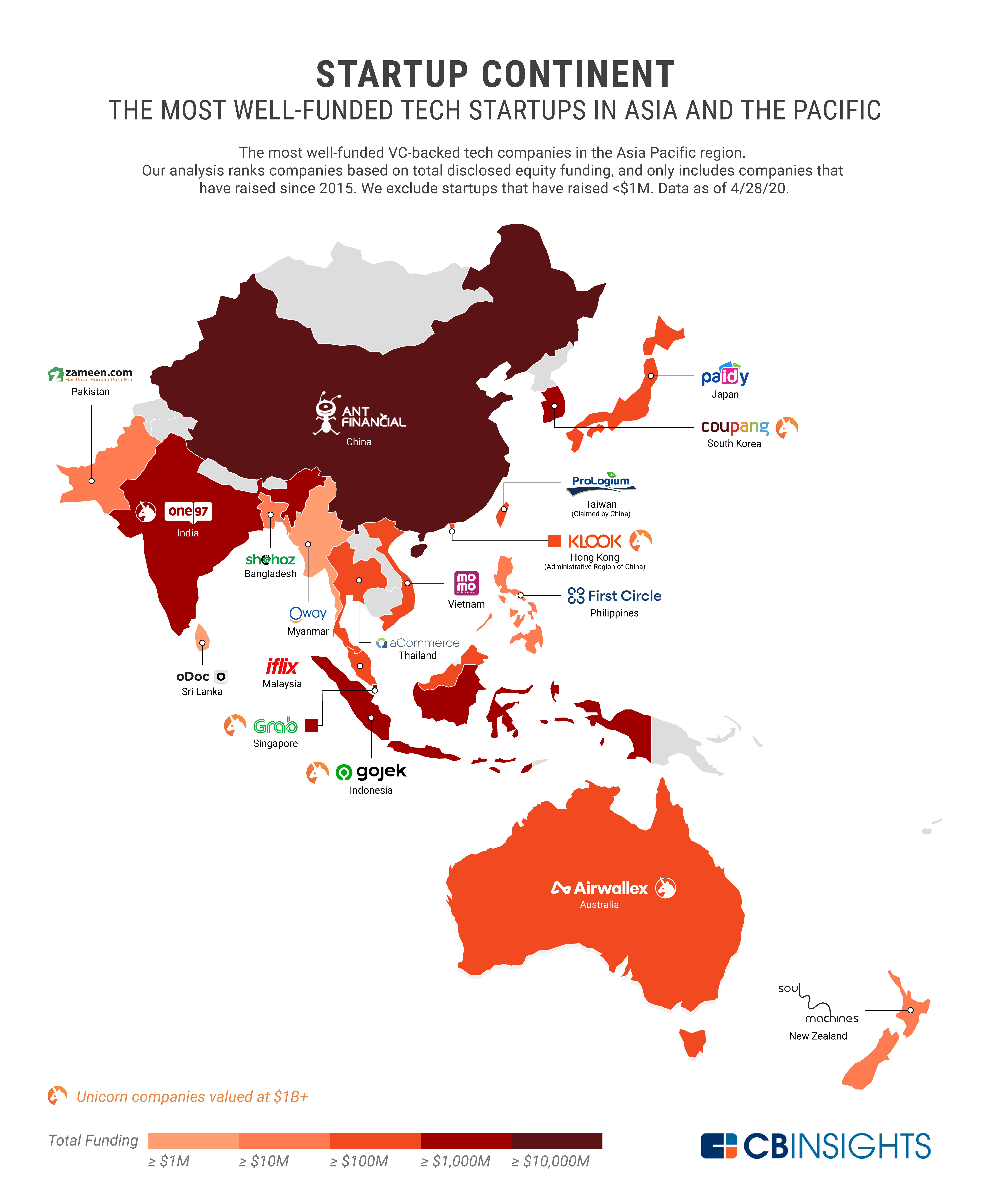Fueled by surging mobile and Internet penetration rates, rising fintech adoption and the huge amounts of funding being injected into the sector, Asia is rapidly emerging as a paytech powerhouse.
What is paytech
Like other financial verticals, the payment industry has undergone tremendous transformation over the past couple of years, fueled by new regulations, advances in technology and changing consumer habits.
Today, the burgeoning paytech (payment technology) industry counts startups and firms operating in all kinds of fields and for all sorts of purposes ranging from consumer mobile payments and e-commerce payments, to cross-border remittances and blockchain-based peer-to-peer (P2P) transactions.
One emerging trend that’s worth following closely, according to a Research and Markets, is artificial intelligence (AI)-powered payments using voice command, a sector that’s projected to see rapid growth over the next three years.
Internet-of-Things (IoT) payments too are set to be becoming more commonplace in the near future, the research found.
Asia’s burgeoning paytech startups
In 2019, investors poured more than US$110 billion into nearly 8,500 deals to tech startups based in Asia Pacific (APAC), which included large sums going towards paytech firms and startups including payment giant Ant Financial in China, Indonesian on-demand logistics unicorn and Go-Pay operator Gojek, and Airwallex, a fintech unicorn headquartered in Hong Kong originally from Australia.
Investors’ infatuation with Asia’s paytech industry has led to the emergence of a burgeoning sector that now counts some of the region’s most well-funded and most valuable tech startups.
In China, Singapore, India, Indonesia and Vietnam, the most well-funded tech startups for each locations are either paytech startups or are active in the payment sector, showcasing investors’ eagerness to participate in the region’s surging digital payment industry.

Most well-funded tech startups in Asia Pacific, Source: CB Insights, April 2020
With a valuation of US$150 billion and over US$19 billion in total disclosed equity funding, Ant Financial is Asia’s most well-funded startup across the whole APAC region and the most valuable fintech in the world.
Ant Financial started out in paytech with the widely popular digital payment platform Alipay before expanding into digital banking, lending, credit scoring, wealth management, and more.
APAC’s second most-well funded tech startup at nearly US$9 billion is Grab, an on-demand ride-hailing company originally from Malaysia but which later moved to Singapore. Grab offers a range of services including transport, on-demand delivery, consumer and financial services on a single mobile platform. The super-app is Southeast Asia’s first decacorn with a valuation of US$14 billion, as of March 2019.
APAC’s third most well-funded tech startup is mobile Internet company One97 Communications, which operates Paytm, an e-commerce payment system and fintech company in India that has raised US$4.7 billion. One97 Communications is valued at US$16 billion.
In Indonesia, Gojek is the most well-funded startup with US$4.6 billion raised so far. Gojek, which offers an on-demand multi-service platform and digital paytech services, is valued at US$10 billion. It operates Indonesia’s fourth biggest e-wallet service Go-Pay.
Finally, in Vietnam, M_Service, the company behind mobile payment app MoMo, has raised a total of US$134 million, the most that’s ever been raised by a tech startup in the country. MoMo counts more than 13 million users in Vietnam, and is backed by the likes of Warburg Pincus, Standard Chartered, and Goldman Sachs.
Recent paytech developments
Besides these APAC tech leaders, the region is also home to a variety of younger paytech startups, which, despite their smaller sizes, have been making significant strides this year.
In Thailand, Synqa, formerly known as Omise, raised a US$80 million Series C funding round in June from Thai lender Siam Commercial Bank and other companies including Japan’s Sumitomo Mitsui and Toyota. Founded in 2013 as a payment gateway, Synqa has attracted a host of big-name clients in Thailand including McDonald’s and Allianz Ayudhya.
In Hong Kong, Airwallex recently teamed up with Deutsche Bank to help it provide virtual account collections and API-enabled foreign exchange services in Japan and Hong Kong, respectively. Airwallex closed a massive US$160 million Series D round in April this year, which it said it would use to launch more cross-border financial products.
And in India, point-of-sale (POS) services provider Pine Labs raised a new round of funding earlier this year from global card network MasterCard. Though the transaction details were not disclosed, the deal was estimated to be in the US$100-150 million range, turning Pine Labs into the first Indian tech unicorn to reach unicorn status this year with a valuation of US$1.5-1.6 billion.
Featured image credit: Unsplash








